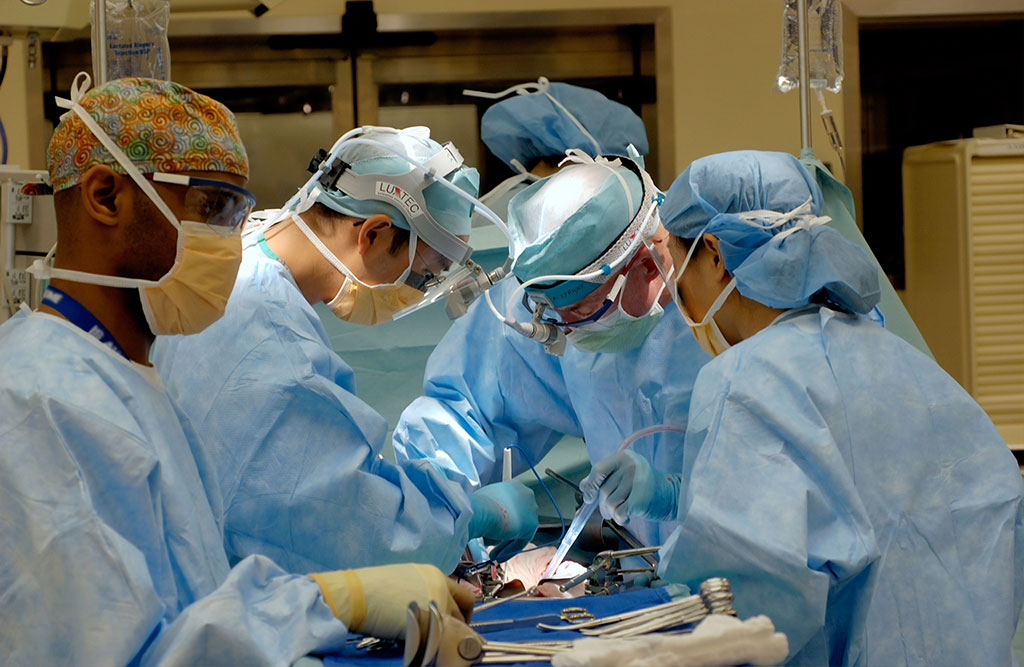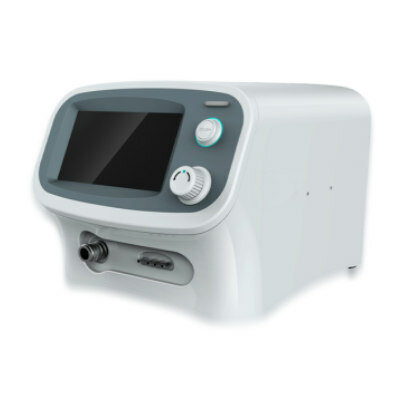Post-Surgery Tissue Monitoring and Diagnostic System Detects Anastomotic Leaks after GI Surgery
|
By HospiMedica International staff writers Posted on 25 Mar 2022 |

Anastomotic (AI) leak is a common, life threatening complication of gastrointestinal (GI) surgeries such as colorectal and bariatric. Early detection before clinical manifestation of AI leak is key to a favorable outcome, but diagnosis at this stage is difficult. Now, a tissue monitoring and diagnostic system is being studied for the early detection of AI leaks following low anterior resection GI surgery.
Exero Medical’s (Or Yehuda, Israel) xBar tissue monitoring and diagnostic system is a sensor designed to track tissue healing internally from the surgical site following an operation. The biodegradable wireless sensor aims to prevent complications by warning physicians of a potential leak, enabling early intervention. Exero’s system intended benefits are better patient recovery, prevention of serious complications in case of a postoperative leak, generation of new real time data on patient recovery, cost reduction and shorter hospitalization.
Exero has enrolled the first patient in its multi-center safety and feasibility study of xBar. The data collected will be used to refine the system's machine-learning algorithms and evaluate the system against the institutional standard of leak diagnosis. Exero’s system targets an addressable market of millions of procedures annually with over USD 2 billion of potential revenues.
"An anastomotic leak is the most fretted complication of colorectal surgery. Of the more than five million patients undergoing GI surgery every year, as many as 10% percent could develop this devastating complication," said Professor Nir Wasserberg, M.D., Chair of the Israel Colorectal Society and Director, Division of Colorectal Surgery, Department of Surgery, Beilinson Campus, Rabin Medical Center. "Of those, up to 40%, will need multiple revision surgeries, longer hospitalization stays in terms of weeks and, frankly some won't make it. Mortality depends on how early a leak is detected and how quickly intervention begins. The diagnostic monitoring system developed by Exero Medical is intended to provide timely intervention that could save lives and improve the prognosis of hundreds of thousands of patients as well as save the healthcare system billions of dollars every year."
"The severe complications associated with AI leaks cost the healthcare system in excess of USD 7 billion annually," said Exero Medical CEO Dr. Erez Shor. "It's important to understand that these complications can be avoided by detecting such leaks early. Exero Medical's breakthrough technology is designed to directly monitor the healing of the surgical site so that post-op complications can be circumvented."
Related Links:
Exero Medical
Latest Surgical Techniques News
- Intravascular Imaging for Guiding Stent Implantation Ensures Safer Stenting Procedures
- World's First AI Surgical Guidance Platform Allows Surgeons to Measure Success in Real-Time
- AI-Generated Synthetic Scarred Hearts Aid Atrial Fibrillation Treatment
- New Class of Bioadhesives to Connect Human Tissues to Long-Term Medical Implants
- New Transcatheter Valve Found Safe and Effective for Treating Aortic Regurgitation
- Minimally Invasive Valve Repair Reduces Hospitalizations in Severe Tricuspid Regurgitation Patients
- Tiny Robotic Tools Powered by Magnetic Fields to Enable Minimally Invasive Brain Surgery
- Magnetic Tweezers Make Robotic Surgery Safer and More Precise
- AI-Powered Surgical Planning Tool Improves Pre-Op Planning
- Novel Sensing System Restores Missing Sense of Touch in Minimally Invasive Surgery
- Headset-Based AR Navigation System Improves EVD Placement
- Higher Electrode Density Improves Epilepsy Surgery by Pinpointing Where Seizures Begin
- Open-Source Tool Optimizes Placement of Visual Brain Implants
- Easy-To-Apply Gel Could Prevent Formation of Post-Surgical Abdominal Adhesions
- Groundbreaking Leadless Pacemaker to Prevent Invasive Surgeries for Children
- Spectroscopy Technique Improves Surgery for Pediatric Epilepsy Patients
Channels
Critical Care
view channel
Ingestible Smart Capsule for Chemical Sensing in the Gut Moves Closer to Market
Intestinal gases are associated with several health conditions, including colon cancer, irritable bowel syndrome, and inflammatory bowel disease, and they have the potential to serve as crucial biomarkers... Read moreNovel Cannula Delivery System Enables Targeted Delivery of Imaging Agents and Drugs
Multiphoton microscopy has become an invaluable tool in neuroscience, allowing researchers to observe brain activity in real time with high-resolution imaging. A crucial aspect of many multiphoton microscopy... Read more
Novel Intrabronchial Method Delivers Cell Therapies in Critically Ill Patients on External Lung Support
Until now, administering cell therapies to patients on extracorporeal membrane oxygenation (ECMO)—a life-support system typically used for severe lung failure—has been nearly impossible.... Read morePatient Care
view channel
Portable Biosensor Platform to Reduce Hospital-Acquired Infections
Approximately 4 million patients in the European Union acquire healthcare-associated infections (HAIs) or nosocomial infections each year, with around 37,000 deaths directly resulting from these infections,... Read moreFirst-Of-Its-Kind Portable Germicidal Light Technology Disinfects High-Touch Clinical Surfaces in Seconds
Reducing healthcare-acquired infections (HAIs) remains a pressing issue within global healthcare systems. In the United States alone, 1.7 million patients contract HAIs annually, leading to approximately... Read more
Surgical Capacity Optimization Solution Helps Hospitals Boost OR Utilization
An innovative solution has the capability to transform surgical capacity utilization by targeting the root cause of surgical block time inefficiencies. Fujitsu Limited’s (Tokyo, Japan) Surgical Capacity... Read more
Game-Changing Innovation in Surgical Instrument Sterilization Significantly Improves OR Throughput
A groundbreaking innovation enables hospitals to significantly improve instrument processing time and throughput in operating rooms (ORs) and sterile processing departments. Turbett Surgical, Inc.... Read moreHealth IT
view channel
Printable Molecule-Selective Nanoparticles Enable Mass Production of Wearable Biosensors
The future of medicine is likely to focus on the personalization of healthcare—understanding exactly what an individual requires and delivering the appropriate combination of nutrients, metabolites, and... Read more
Smartwatches Could Detect Congestive Heart Failure
Diagnosing congestive heart failure (CHF) typically requires expensive and time-consuming imaging techniques like echocardiography, also known as cardiac ultrasound. Previously, detecting CHF by analyzing... Read moreBusiness
view channel
Expanded Collaboration to Transform OR Technology Through AI and Automation
The expansion of an existing collaboration between three leading companies aims to develop artificial intelligence (AI)-driven solutions for smart operating rooms with sophisticated monitoring and automation.... Read more
















